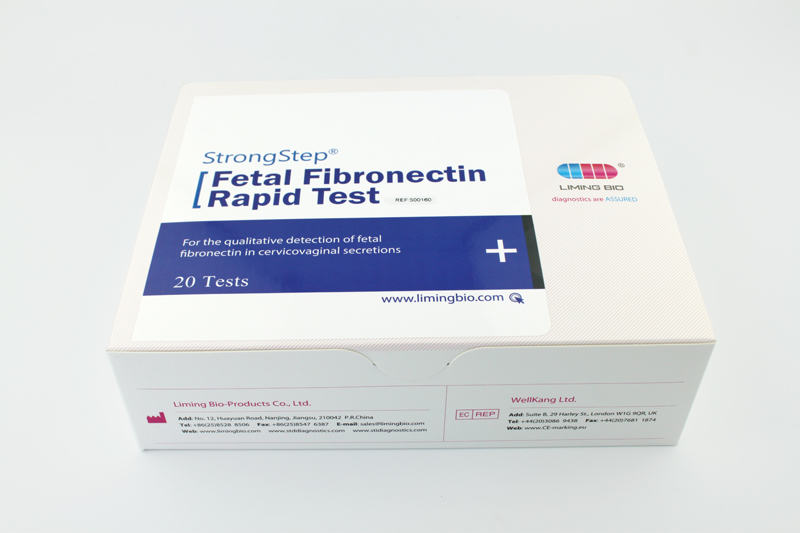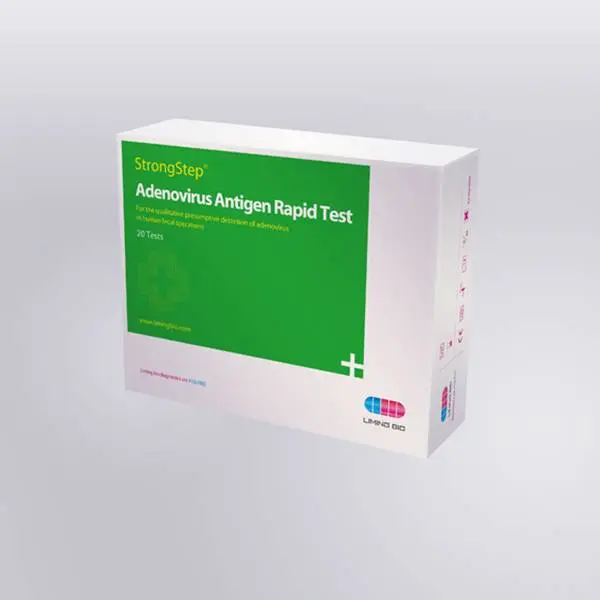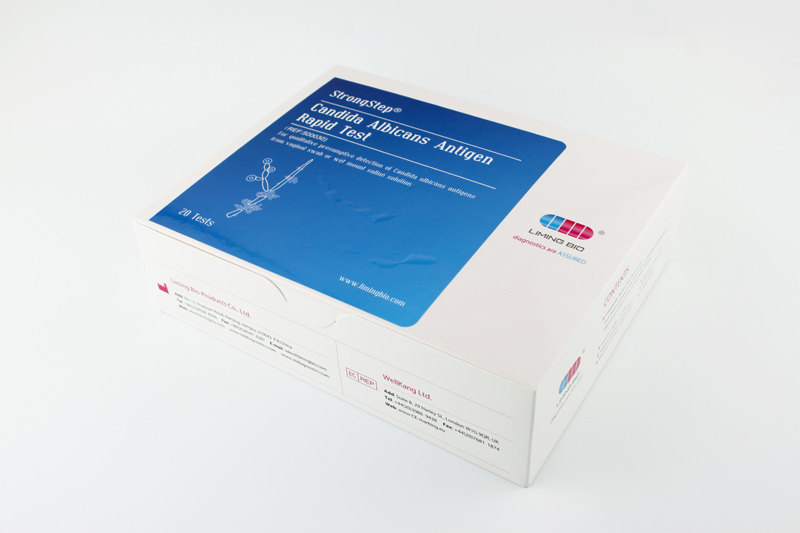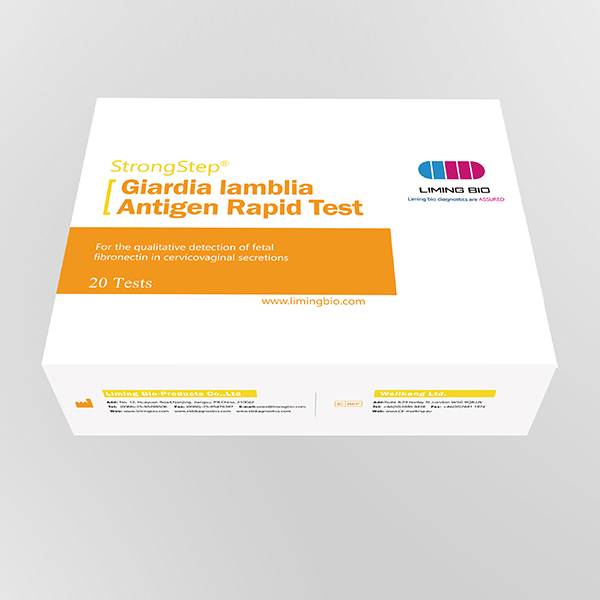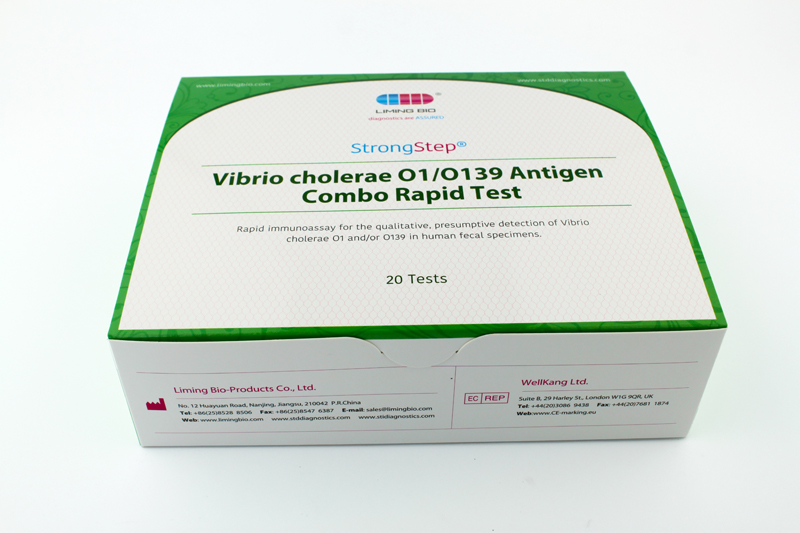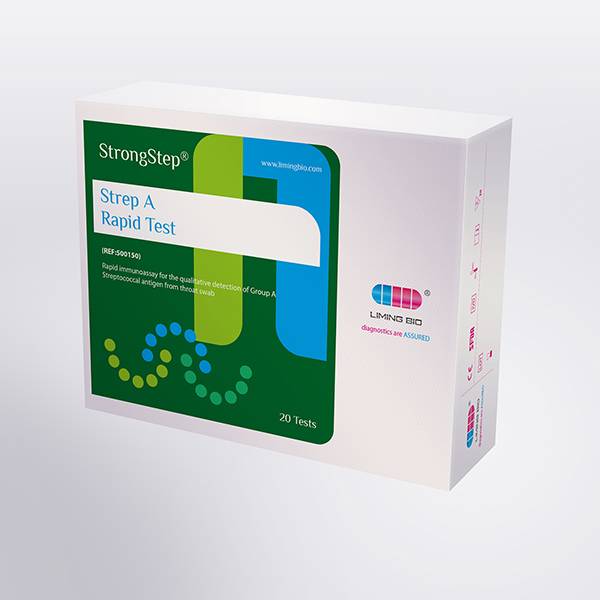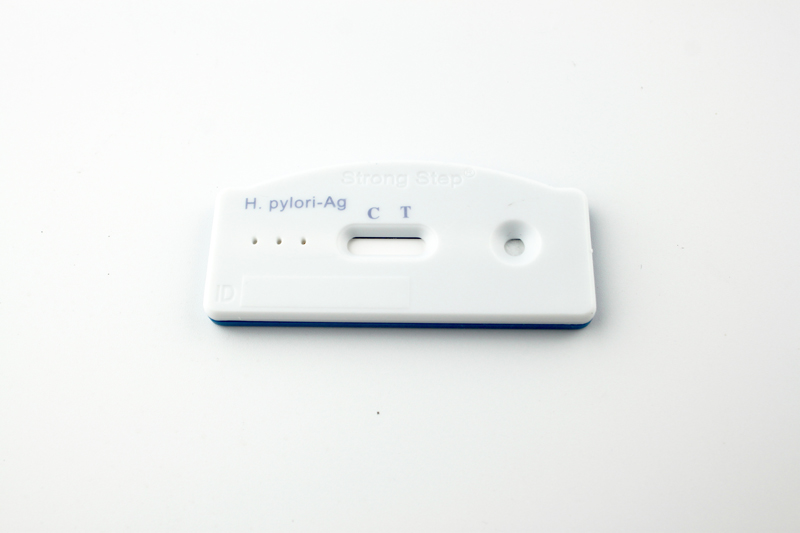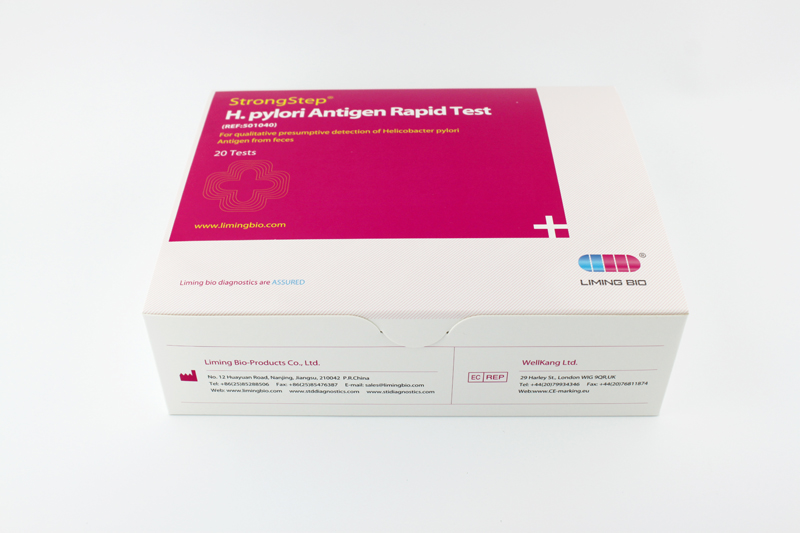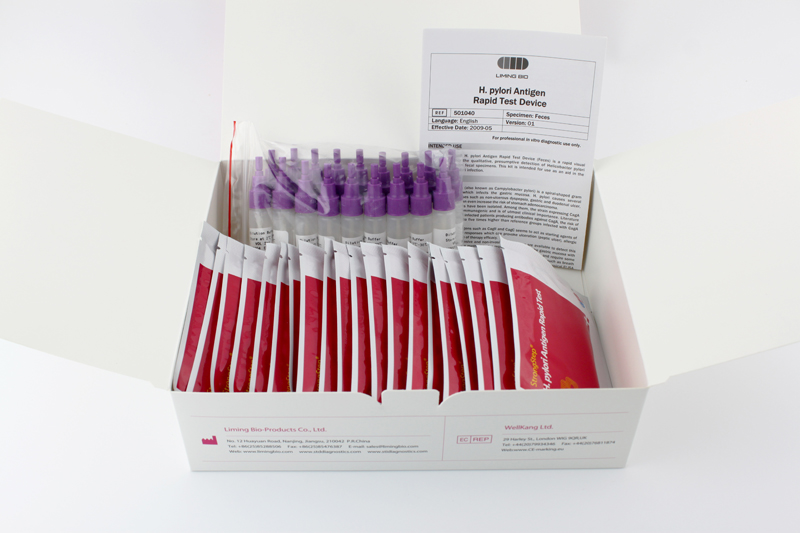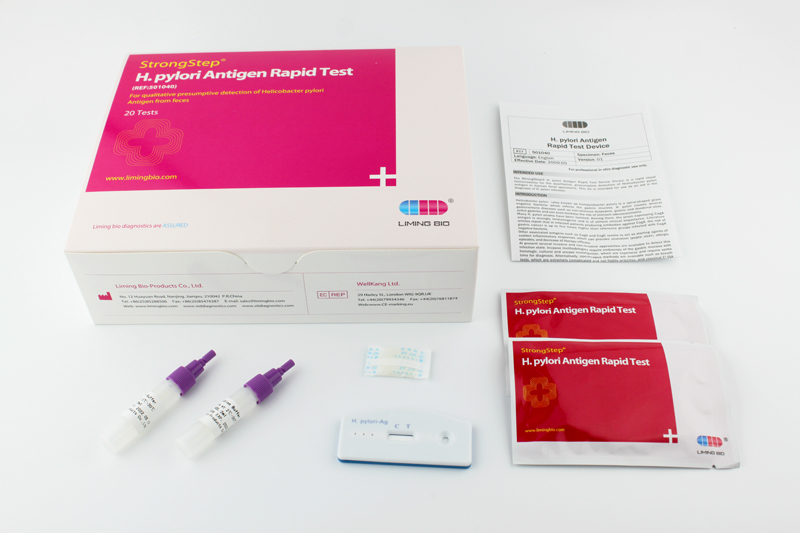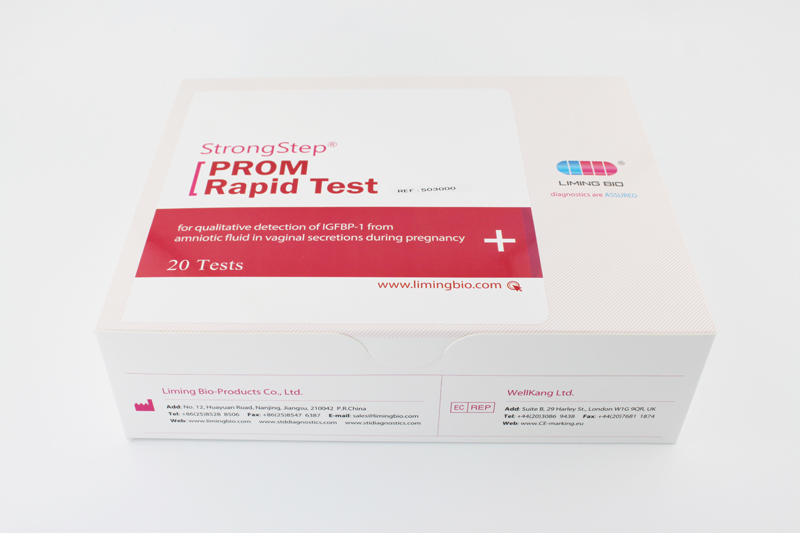Benefits
Accurate
98.5% sensitivity, 98.1% specificity compared with endoscopy.
Rapid
Results come out in 15 minutes.
Non-invasive and non-radioactive
Room temperature storage
Specifications
Sensitivity 98.5%
Specificity 98.1%
Accuracy 98.3%
CE marked
Kit Size=20 tests
File: Manuals/MSDS
INTRODUCTION
Helicobacter pylori (also known as Campylobacter pylori) is a spiral-shaped gram negative bacteria which infects the gastric mucosa. H. pylori causes several gastro-enteric diseases such as non-ulcerous dyspepsia, gastric and duodenal ulcer,
active gastritis and can even increase the risk of stomach adenocarcinoma. Many H. pylori strains have been isolated. Among them, the strain expressing CagA antigen is strongly immunogenic and is of utmost clinical importance. Literature
articles report that in infected patients producing antibodies against CagA, the risk of gastric cancer is up to five times higher than reference groups infected with CagA negative bacteria.
Other associated antigens such as CagII and CagC seems to act as starting agents of sudden inflammatory responses which can provoke ulceration (peptic ulcer), allergic episodes, and decrease of therapy efficacy.
At present several invasive and non-invasive approaches are available to detect this infection state. Invasive methodologies require endoscopy of the gastric mucosa with histologic, cultural and urease investigation, which are expensive and
require some time for diagnosis. Alternatively, non-invasive methods are available such as breath tests, which are extremely complicated and not highly selective, and classical ELISA and immunoblot assays.
STORAGE AND STABILITY
•The kit should be stored at 2-30°C until the expiry date printed on the sealed pouch.
•The test must remain in the sealed pouch until use.
•Do not freeze.
• Cares should be taken to protect components in this kit from contamination. Do not use if there is evidence of microbial contamination or precipitation. Biological contamination of dispensing equipments, containers or reagents can
lead to false results.
SPECIMEN COLLECTION AND STORAGE
• The H. pylori Antigen Rapid Test Device (Feces) is intended for use with human fecal specimens only.
• Perform testing immediately after specimen collection. Do not leave specimens at room temperature for prolonged periods. Specimens may be stored at 2-8°C for up to 72 hours.
• Bring specimens to room temperature prior to testing.
• If specimens are to be shipped, pack them in compliance with all applicable regulations for transportation of etiological agents.

